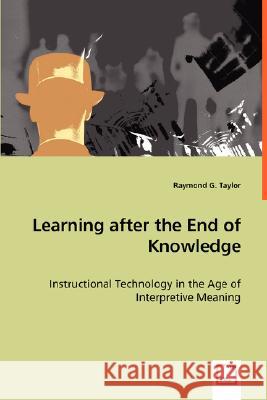Learning after the End of Knowledge - Instructional Technology in the Age of Interpretive Meaning » książka
Learning after the End of Knowledge - Instructional Technology in the Age of Interpretive Meaning
ISBN-13: 9783639024876 / Angielski / Miękka / 2008 / 156 str.
This highly reflective and personal analysis goes where few researchers in the field of instructional technology have dared to go: the evolution of epistemology itself. The result is a critique of the current trends and methods of organizing knowledge for instruction, and their underlying learning theories, that have been long surpassed in other disciplines. LEARNING AFTER THE END OF KNOWLEDGE takes the position that the standard approach to designing instruction developed originally in the 1950s is no longer relevant in the current information age. The widespread growth of the Internet and the resulting sea of knowledge is exerting a force on traditional learning materials and the methods used to create them. This has resulted in an unprecedented instability of conceptual knowledge and skills. Surprisingly, this problem has already been tackled by a small but influential group of post-analytical thinkers such as Richard Rorty, W.V.O. Quine and Donald Davidson. Based on his M.A. thesis, Taylor calls for a radicalized approach to designing instruction based on a very simple idea: It is not knowledge itself, but knowledge-in-use that drives the all important desire to learn.











